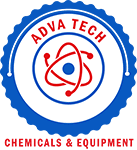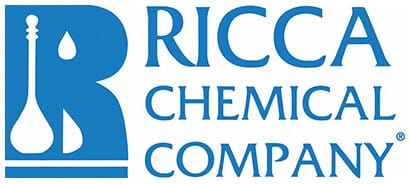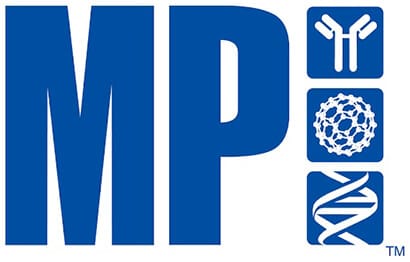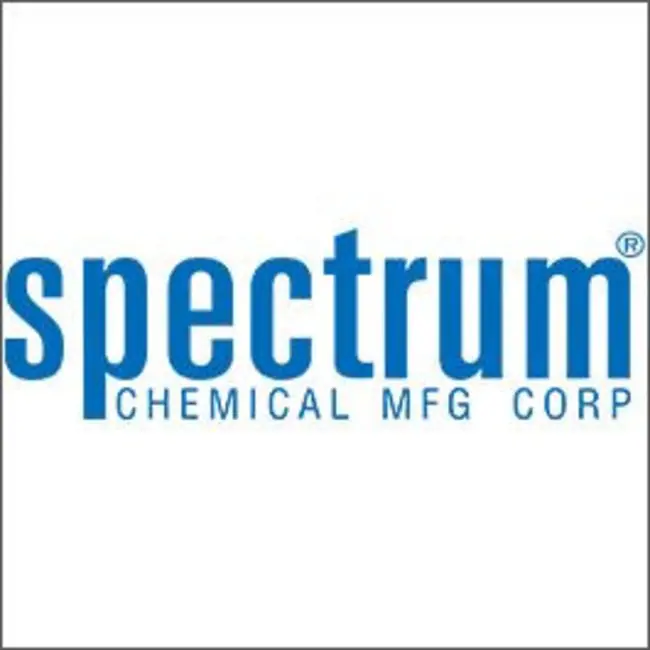100g
Showing 701–750 of 2276 results
-

Carbidopa, USP
$3,523.74 Add to cart View Product DetailsCarbidopa, USP
-

Carbomer 934P, Resin, NF
$127.48 Add to cart View Product DetailsCarbomer 934P, Resin, NF
-

Carbomer 940, NF
$104.04 Add to cart View Product DetailsCarbomer 940, NF
-

Carbomer 941, NF
$101.40 Add to cart View Product DetailsCarbomer 941, NF
-

Carbon Tetrabromide
$392.37 Add to cart View Product DetailsCarbon Tetrabromide
-

Carbon Tetrabromide
$83.26 Add to cart View Product DetailsCarbon Tetrabromide
-

Carboxymethylcellulose Calcium Salt
$358.05 Add to cart View Product DetailsCarboxymethylcellulose Calcium Salt
-

Carmine
$736.01 Add to cart View Product DetailsCarmine
-

Carrageenan, NF
$470.76 Add to cart View Product DetailsCarrageenan, NF
-

Casein-Hammersten
$72.34 Add to cart View Product DetailsCasein-Hammersten
-

Castor Oil, Ethoxylated
$132.64 Add to cart View Product DetailsCastor Oil, Ethoxylated
-

Catechol
$131.24 Add to cart View Product DetailsCatechol
-
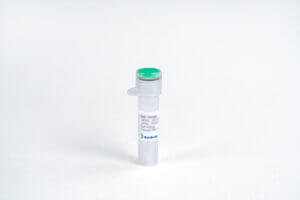
Cathepsin B, Human
$780.56 Add to cart View Product DetailsCathepsin B is an enzymatic protein belonging to the peptidase (or protease) families. The protein encoded by this gene is a lysosomal cysteine protease composed of a dimer of disulfide-linked heavy and light chains, both produced from a single protein precursor. It is a member of the peptidase C1 family. At least five transcript variants encoding the same protein have been found for this gene. Cystatin-B / CSTB is an intracellular thiol proteinase inhibitor. Tightly binding reversible inhibitor of cathepsins L, H and B. Cystatin-B / CSTB is able to form a dimer stabilized by noncovalent forces, inhibiting papain and cathepsins l, h and b. Cystatin-B / CSTB is also thought to play a role in protecting against the proteases leaking from lysosomes.
-

CCL25, Mouse
$521.81 Add to cart View Product DetailsCCL25 is a new member of the CC family chemokine. It is also called Thymus-expressed chemokine (TECK) because it is restricted produced by thymus and intestine. Especially, the dendritic cells derived from thymus but not bone marrow had been identified to be the source of CCL25. By binding with CCR9, it elicits its effects of chemotactic for thymocytes, macrophages, and dendritic cells. Additionally, CCL25 takes part in regulating the development of T-cells.
-

CD20, His & Avi, Human
$301.88 Add to cart View Product DetailsB-lymphocyte antigen CD20 or CD20 is an activated-glycosylated phosphoprotein expressed on the surface of all B-cells beginning at the pro-B phase (CD45R , CD117 ) and progressively increasing in concentration until maturity.CD20 is the target of the monoclonal antibodies rituximab, ocrelizumab, obinutuzumab, ofatumumab, ibritumomab tiuxetan, tositumomab, and ublituximab, which are all active agents in the treatment of all B cell lymphomas, leukemias, and B cell-mediated autoimmune diseases.
-

CD200 R1, His, Human
$241.50 Add to cart View Product DetailsCell surface glycoprotein CD200 Receptor 1 (CD200R1) is the receptor for the CD200 (OX-2) membrane glycoprotein. CD200R1 contains one C2- type Ig-like domain and one V-type Ig-like domain within its extracellular domain and a PTB-signaling motif in cytoplasmic domain. CD200R1 and CD200 associate via their respective N-terminal Ig-like domains. CD200R1 is restricted primarily to mast cells, basophils, macrophages, and dendritic cells. It propagates inhibitory signals despite its lacking a cytoplasmic ITIM (immunoreceptor tyrosinebased inhibitory motif). The receptor-substrate interaction may function as a myeloid downregulatory signal.
-
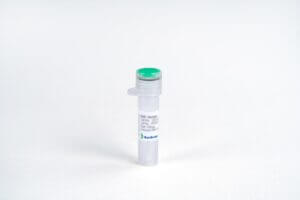
CD24 Fc Chimera, Human
$189.75 Add to cart View Product DetailsSignal transducer CD24 also known as cluster of differentiation 24 or heat stable antigen CD24 (HSA) is a protein that in humans is encoded by the CD24 gene. CD24 is a cell adhesion molecule. CD24 is a sialoglycoprotein expressed at the surface of most B lymphocytes and differentiating neuroblasts. It is also expressed on neutrophils and neutrophil precursors from the myelocyte stage onwards. The encoded protein is anchored via a glycosyl phosphatidylinositol (GPI) link to the cell surface. The protein also contributes to a wide range of downstream signaling networks and is crucial for neural development. Cross-linking of CD24 on the surface of neutrophils induces apoptosis, and this appears to be defective in sepsis.
-

CD24 Fc Chimera, Mouse
$189.75 Add to cart View Product DetailsSignal transducer CD24 also known as cluster of differentiation 24 or heat stable antigen CD24 (HSA) is a protein that in mouse is encoded by the CD24 gene. CD24 is a cell adhesion molecule. CD24 is a sialoglycoprotein expressed at the surface of most B lymphocytes and differentiating neuroblasts. It is also expressed on neutrophils and neutrophil precursors from the myelocyte stage onwards. The encoded protein is anchored via a glycosyl phosphatidylinositol (GPI) link to the cell surface. The protein also contributes to a wide range of downstream signaling networks and is crucial for neural development. Cross-linking of CD24 on the surface of neutrophils induces apoptosis, and this appears to be defective in sepsis.
-
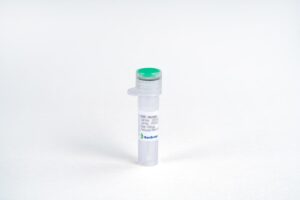
CD27 Ligand/CD70 Fc Chimera, Human
$189.75 Add to cart View Product DetailsCD70 (Cluster of Differentiation 70) is a protein that in humans is encoded by CD70 gene. CD70 is a ligand for CD27. The CD70-CD27 pathway plays an important role in the generation and maintenance of T cell immunity, in particular during antiviral responses. Upon CD27 binding, induces the proliferation of costimulated T-cells and enhances the generation of cytolytic T-cells.The CD70 protein is expressed on highly activated lymphocytes (like in T- and B-cell lymphomas). It is therefore suggested that anti-CD70 antibodies might be a possible treatment for CD70 positive lymphomas as normal lymphocytes have low CD70 expression.
-

CD28 Fc Chimera, Human
$129.38 Add to cart View Product DetailsHuman CD28 is composed of four exons encoding a protein of 220 amino acids that is expressed on the cell surface as a glycosylated, disulfide-linked homodimer of 44 kDa. Members of the CD28 family share a number of common features. These receptors consist of paired V-set immunoglobulin superfamily (IgSF) domains attached to single transmembrane domains and cytoplasmic domains that contain critical signaling motifs. The CD28 and CTLA4 ligands, CD80 and CD86, consist of single V-set and C1-set IgSF domains. The interaction of these costimulatory receptors with ligands is mediated through the MYPPPY motif within the receptor V-set domains. CD28 is expressed constitutively on almost all human CD4 T cells and approximately 50% of CD8 T cells. CD28 costimulation has diverse effects on T cell function, including biochemical events at the immunological synapse, downstream phosphorylation and other post-translational modifications, transcriptional changes, and cytoskeletal remodeling. At the most basic level, CD28 signals increase a cell’s glycolytic rate, allowing cells to generate the energy necessary for growth and proliferation.
-

CD30, hFc, Human
$172.50 Add to cart View Product DetailsCD30, also known as TNFRSF8, is a cell membrane protein of the tumor necrosis factor receptor family, which regulates proliferation/apoptosis and antibody responses. CD30 is expressed by activated, but not by resting, T and B cells. Aberrant expression of CD30 by mastocytosis mast cells and interaction with its ligand CD30L (CD153) appears to play an important role in the pathogenesis and clinical presentation of systemic mastocytosis. CD30 has been considered as a specific diagnostic biomarker of anaplastic large cell lymphoma (ALCL) and classical Hodgkin lymphoma (cHL). CD30 is also a biomarker used for targeted therapy by an antibody–drug conjugate.
-

CD30, His, Human
$172.50 Add to cart View Product DetailsCD30, also known as TNFRSF8, is a cell membrane protein of the tumor necrosis factor receptor family, which regulates proliferation/apoptosis and antibody responses. CD30 is expressed by activated, but not by resting, T and B cells. Aberrant expression of CD30 by mastocytosis mast cells and interaction with its ligand CD30L (CD153) appears to play an important role in the pathogenesis and clinical presentation of systemic mastocytosis. CD30 has been considered as a specific diagnostic biomarker of anaplastic large cell lymphoma (ALCL) and classical Hodgkin lymphoma (cHL). CD30 is also a biomarker used for targeted therapy by an antibody–drug conjugate.
-

CD40, His, Human
$189.75 Add to cart View Product DetailsCD40 is a costimulatory protein found on antigen presenting cells and is required for their activation. The binding of CD154 (CD40L) on TH cells to CD40 activates antigen presenting cells and induces a variety of downstream effects.CD40 molecule is a potential target for cancer immunotherapy. There are number of completed and ongoing clinical trials where agonistic anti-CD40 monoclonal antibodies are employed to activate an anti-tumor T cell response via activation of dendritic cells.
-

CD47 Fc Chimera, Human
$301.88 Add to cart View Product DetailsLeukocyte surface antigen CD47 is also known as Antigenic surface determinant protein OA3, Integrin-associated protein (IAP) and Protein MER6. CD47 contains 1 Ig-like V-type (immunoglobulin-like) domain. CD47 is a 40‑60 kDa variably glycosylated atypical member of the immunoglobulin superfamily and an integral membrane protein that consists of a 123 amino acid (aa) extracellular domain (ECD) with a single Ig-like domain, five membrane-spanning regions with short intervening loops, and a 34 aa C-terminal cytoplasmic tail. CD47 has a role in both cell adhesion by acting as an adhesion receptor for THBS1 on platelets, and in the modulation of integrins and plays an important role in memory formation and synaptic plasticity in the hippocampus by similarity. CD47 is the receptor for SIRPA, binding to which prevents maturation of immature dendritic cells and inhibits cytokine production by mature dendritic cells. CD47 Interaction with SIRPG mediates cell-cell adhesion, enhances superantigen-dependent T-cell-mediated proliferation and costimulates T-cell activation.
-

CD47, His, Human
$301.88 Add to cart View Product DetailsLeukocyte surface antigen CD47 is also known as Antigenic surface determinant protein OA3, Integrin-associated protein (IAP) and Protein MER6. CD47 contains 1 Ig-like V-type (immunoglobulin-like) domain. CD47 is a 40‑60 kDa variably glycosylated atypical member of the immunoglobulin superfamily and an integral membrane protein that consists of a 123 amino acid (aa) extracellular domain (ECD) with a single Ig-like domain, five membrane-spanning regions with short intervening loops, and a 34 aa C-terminal cytoplasmic tail. CD47 has a role in both cell adhesion by acting as an adhesion receptor for THBS1 on platelets, and in the modulation of integrins and plays an important role in memory formation and synaptic plasticity in the hippocampus by similarity. CD47 is the receptor for SIRPA, binding to which prevents maturation of immature dendritic cells and inhibits cytokine production by mature dendritic cells. CD47 Interaction with SIRPG mediates cell-cell adhesion, enhances superantigen-dependent T-cell-mediated proliferation and costimulates T-cell activation.
-
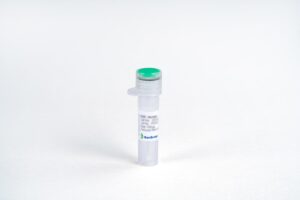
CD48/SLAMF2 Fc Chimera, Human
$172.50 Add to cart View Product DetailsCD48 antigen (Cluster of Differentiation 48) also known as B-lymphocyte activation marker (BLAST-1) or signaling lymphocytic activation molecule 2 (SLAMF2) is a protein that in humans is encoded by the CD48 gene. CD48 is a member of the CD2 subfamily of the immunoglobulin superfamily (IgSF) which includes SLAM (signaling lymphocyte activation molecules) proteins, such as CD84, CD150, CD229 and CD244. CD48 is found on the surface of lymphocytes and other immune cells, dendritic cells and endothelial cells, and participates in activation and differentiation pathways in these cells. CD48 was the first B-cell-specific cellular differentiation antigen identified in transformed B lymphoblasts.
-

CD73, His, Human
$301.88 Add to cart View Product DetailsCD73, also known as ecto-5′-nucleotidase, is an enzyme that in humans is encoded by the NT5E gene.CD73 commonly serves to convert AMP to adenosine.The enzyme consists of a dimer of 2 identical 70-kD subunits bound by a glycosyl phosphatidyl inositol linkage to the external face of the plasma membrane. The enzyme is used as a marker of lymphocyte differentiation. A deficiency of CD73 occurs in a variety of immunodeficiency diseases.
-
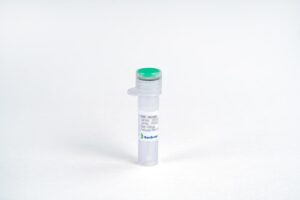
CD96, His, Human
$189.75 Add to cart View Product DetailsCD96 (Cluster of Differentiation 96), also known as Tactile (T cell activation, increased late expression), is a receptor protein which is expressed on T cells and NK cells and shares sequence similarity with CD226 (also known as DNAM-1). The main ligand of CD96 is CD155 and CD96 competes with CD226 for binding to CD155. This protein belongs to the immunoglobulin superfamily and may play a role in the adhesive interactions of activated T and NK cells during the late phase of the immune response. It may also promote NK cell-target adhesion by interacting with PVR present on target cells and function in antigen presentation.
-

CEA Fc chimera, Human
$194.06 Add to cart View Product DetailsCarcinoembryonic antigen (CEA) also known as Carcinoembryonic antigen-related cell adhesion molecule 5 (CEACAM5), CD antigen CD66e, Meconium antigen 100, is an oncofetal glycoprotein that is normally expressed by mucosal cells. CEA is a member of the immunoglobulin (Ig) superfamily of proteins. CEA is a glycophosphatidylinositol- (GPI-) linked membrane-anchoring protein that is exposed to the cell surface that faces the extracellular matrix. The membrane-anchoring region of CEA can be cleaved by phospholipase C and phospholipase D. The cleaved products are soluble and circulating through blood vessels. Thus, CEA can be present as secreted and cell surface-anchored forms. CEA is functionally associated with cellular interaction, cell adhesion, immune response, anoikis resistance, and promotion of liver metastasis. CEA overexpression is associated with many types of cancers including gastrointestinal, respiratory, and genitourinary system and breast cancers.
-

CEA, His, Human
$194.06 Add to cart View Product DetailsCarcinoembryonic antigen (CEA) also known as Carcinoembryonic antigen-related cell adhesion molecule 5 (CEACAM5), CD antigen CD66e, Meconium antigen 100, is an oncofetal glycoprotein that is normally expressed by mucosal cells. CEA is a member of the immunoglobulin (Ig) superfamily of proteins. CEA is a glycophosphatidylinositol- (GPI-) linked membrane-anchoring protein that is exposed to the cell surface that faces the extracellular matrix. The membrane-anchoring region of CEA can be cleaved by phospholipase C and phospholipase D. The cleaved products are soluble and circulating through blood vessels. Thus, CEA can be present as secreted and cell surface-anchored forms. CEA is functionally associated with cellular interaction, cell adhesion, immune response, anoikis resistance, and promotion of liver metastasis. CEA overexpression is associated with many types of cancers including gastrointestinal, respiratory, and genitourinary system and breast cancers.
-

Ceric Oxide, Reagent
$244.66 Add to cart View Product DetailsCeric Oxide, Reagent
-

Ceric Sulfate, Reagent
$504.39 Add to cart View Product DetailsCeric Sulfate, Reagent
-

Cerium (III) Nitrate, Reagent
$266.56 Add to cart View Product DetailsCerium (III) Nitrate, Reagent
-

Cerium (IV) Oxide, Powder
$311.74 Add to cart View Product DetailsCerium (IV) Oxide, Powder
-

Cesium Acetate, Ultrapure
$884.66 Add to cart View Product DetailsCesium Acetate, Ultrapure
-
![Cesium Carbonate, [for General Organic Chemistry]](https://advatechgroup.com/wp-content/plugins/woocommerce/assets/images/xplaceholder.webp.pagespeed.ic.ANHCL-f_RA.webp)
Cesium Carbonate, [for General Organic Chemistry]
$148.88 Add to cart View Product DetailsCesium Carbonate, [for General Organic Chemistry]
-

Cesium Chloride
$146.35 Add to cart View Product DetailsCesium Chloride
-

Cesium Chloride, BiotechGrade
$242.48 Add to cart View Product DetailsCesium Chloride, BiotechGrade
-

Cesium Chloride, Optical Grade
$204.38 Add to cart View Product DetailsCesium Chloride, Optical Grade
-

Cesium Chloride, Technical
$168.50 Add to cart View Product DetailsCesium Chloride, Technical
-

Cesium Fluoride
$225.84 Add to cart View Product DetailsCesium Fluoride
-

Cesium Fluoride, Optical Grade
$499.70 Add to cart View Product DetailsCesium Fluoride, Optical Grade
-

Cesium Iodide
$704.24 Add to cart View Product DetailsCesium Iodide
-

Cesium Sulfate, Reagent
$351.87 Add to cart View Product DetailsCesium Sulfate, Reagent
-

Cetyl Bromide
$74.24 Add to cart View Product DetailsCetyl Bromide
-

CHAPS, Crystalline Powder, Ultrapure
$3,263.38 Add to cart View Product DetailsCHAPS, Crystalline Powder, Ultrapure
-
![Charcoal Activated, [Catalyst for Oxidation using Molecular Oxygen]](https://advatechgroup.com/wp-content/plugins/woocommerce/assets/images/xplaceholder.webp.pagespeed.ic.ANHCL-f_RA.webp)
Charcoal Activated, [Catalyst for Oxidation using Molecular Oxygen]
$61.84 Add to cart View Product DetailsCharcoal Activated, [Catalyst for Oxidation using Molecular Oxygen]
-

CHES, Electrophoresis Grade
$486.75 Add to cart View Product DetailsCHES, Electrophoresis Grade
-

Chitin
$155.81 Add to cart View Product DetailsChitin
-

Chitosan, (50-100mPa.s, 0.5 Percent in 0.5 Percent Acetic Acid at 20deg C)
$116.07 Add to cart View Product DetailsChitosan, (50-100mPa.s, 0.5 Percent in 0.5 Percent Acetic Acid at 20deg C)
